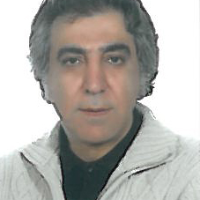Analyzing the Quality of Making Sense of the Phenomena: A Study in Theosophical Discourse based on Eric Landowski’s Viewpoints
One of the difficulties for the addressee who encounters theosophical texts is the inability to comprehend the experiences gained by the theosophist. Regardless of language and scientific understanding of linguistic signs, it is impossible to discover how to make sense of the phenomenal world in theosophical discourse. In line with Heidegger who considers language the house of being, the truth of theosophy is also manifested in language; but for some reasons like the inability of language to express experiences, obstacles in the way of understanding the truth and theosophical experiences, the difficult topic and the extraordinarily of theosophist’s experiences, etc. theosophical language seems difficult and complicated to find. Especially in theosophical discourse, the theosophist/subject as an agent and narrator of theosophy encounters different objects. On the one hand there is the sensory phenomenal world and his sensual experience and on the other hand, we see his mental-theosophical experience which is the interansferable and immediate part of his experience. In this research and in the framework of phenomenological, linguistic and philosophical insights of Eric Landowski the authors have tried to decipher the process of signification of the phenomenal world in two attitudinal systems called Pantheism and Intuitionism in theosophical discourse. Ontologically speaking, the theosophist/subject portrays his relation to the world/text from two viewpoints which are existential and intuitional in nature. As a subject, he makes sense of the phenomenal world in new ways and consequently he will have a different process of birth and semiotic acquisition in front of himself. In this research it has been tried to apply some considerable principles and phenomenological basics in mystical discourse and the relationship between subject and object and subject to the text of the world. Concepts such as Perception, the sensitive, Lived experience, interaction of subject and object, Presence, mental perception and the way we look at phenomena, co-presence, the importance of motivation and Social requirements, etc., have paved the way to the study and analysis of the meaning and perception of the mystical discourse. This approach gives us the opportunity to focus on the subject and the object and the relationship between them. The present study provides a context for better understanding of meaning and phenomena. Based on discursive and phenomenological perspective, the present study attempts to examine the mystic-subject semiotic approach to the text of the world of phenomena in the field of theoretical mysticism. Therefore, the combination of mysticism discourse in this article refers to theoretical mysticism and mystical foundations based on ontology. The main objective of this paper is Rereading of how to produce meaning in two intuitive and existential approaches and in the language of mysticism, which have been done in the theoretical framework of Eric Landowski. This approach answers the following questions in this research:How does the mystic look at the world of phenomena shape the subject view? - How is it possible to establish a relationship between the meaning in the discourse of mysticism with the mystic thoughts and perceptions of mystical experience? - How the presence of subject and two-way interaction cause to create meaning in mysticism? The type of mystic view answers these questions; since the alterity and the object in the world of phenomena are determined by a reference point, and in the discourse of mysticism, this reference point is the mystic presence and narrator of mysticism who plays the role of an independent and dynamic subject.This semiotic process is undoubtedly based on the ontological view of the subject about the category of existence and its multiplicity in two mystical attitudes; that is, the view of intuitive unity and existential unity. The first factor in the difference between the processes of giving meaning to the text-world in these two mystical systems is the mystic-subject point of view, which creates two completely different way of the Scheduled and unity. The difference in the type of meaning of the text-world between the intuitive and existential mystic has continued to make difference between all the mystical beliefs such as having an instrumental view to phenomena or interaction with them, the concept of annihilation and the concept of theoretical and practical mystical education.
-
Discourse analysis of the phenomenal semantics of the epigraphic body of love in Safavid paintings
Masoud Mohammadzadeh *, Morteza , Hamidreza Shairi
Journal of Narrative Studies, -
Studying the meaning based on discontinuity and adjustment in discourse Semiotics regimes a case study of Architect Mahyar puzzle drama by Reza Ghasemi
Zahra Ehsani *, Hamidreza Shairi, Morteza Babak Moin
Journal of Literary Interdisciplinary Research,


